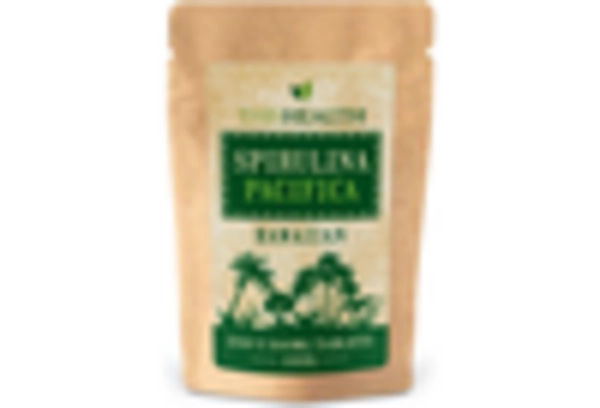Growing Interest in Plant-Based Diets
The spirulina market in Canada is significantly influenced by the increasing interest in plant-based diets. As more Canadians adopt vegetarian and vegan lifestyles, the demand for plant-based protein sources has surged. Spirulina, being a complete protein, offers an attractive alternative to animal-based proteins. Market Research Future indicates that the plant-based food market in Canada is expected to grow at a CAGR of 10% over the next five years, with spirulina products likely to capture a substantial share. This trend reflects a broader shift towards healthier eating habits and the desire for sustainable food options, positioning spirulina as a key player in the evolving dietary landscape.
Rising Popularity of Functional Foods
The spirulina market is witnessing a rise in the popularity of functional foods, which are foods enhanced with additional health benefits. Spirulina is often marketed as a superfood due to its rich nutrient profile, including antioxidants and anti-inflammatory properties. Canadian consumers are increasingly seeking foods that not only nourish but also provide health benefits, driving the demand for spirulina-based products. The functional food market in Canada is projected to grow significantly, with spirulina positioned as a leading ingredient in smoothies, energy bars, and dietary supplements. This trend indicates a shift towards proactive health management, where consumers are more inclined to invest in foods that support their overall well-being.
Sustainability and Eco-Friendly Practices
Sustainability plays a crucial role in shaping the spirulina market in Canada. As environmental concerns rise, consumers are gravitating towards products that are sustainably sourced and produced. Spirulina cultivation is often touted for its low environmental impact, requiring minimal water and land compared to traditional crops. This eco-friendly aspect resonates with Canadian consumers who prioritize sustainability in their purchasing decisions. Furthermore, the Canadian government has been promoting sustainable agricultural practices, which may further bolster the spirulina market. Companies that adopt green practices and emphasize their commitment to sustainability are likely to gain a competitive edge, appealing to environmentally conscious consumers.
Technological Advancements in Cultivation
Technological advancements in the cultivation of spirulina are transforming the spirulina market in Canada. Innovations in aquaculture and biotechnology are enhancing the efficiency and yield of spirulina production. Techniques such as controlled environment systems and automated harvesting are being adopted to optimize growth conditions and reduce costs. As production becomes more efficient, the availability of spirulina products is likely to increase, making them more accessible to consumers. Additionally, these advancements may lead to improved product quality, further driving consumer interest. The integration of technology in spirulina cultivation suggests a promising future for the market, as it aligns with the growing demand for high-quality, sustainably produced health foods.
Increased Demand for Nutritional Supplements
The spirulina market in Canada experiences a notable surge in demand for nutritional supplements, driven by a growing awareness of health benefits associated with spirulina. This blue-green algae is recognized for its high protein content, vitamins, and minerals, appealing to health-conscious consumers. Recent data indicates that the Canadian dietary supplement market is projected to reach approximately $5 billion by 2026, with spirulina products contributing significantly to this growth. As consumers increasingly seek natural and plant-based sources of nutrition, the spirulina market is likely to expand, catering to diverse dietary preferences, including vegan and vegetarian lifestyles. This trend suggests a robust future for spirulina as a staple in health and wellness regimens across Canada.
















